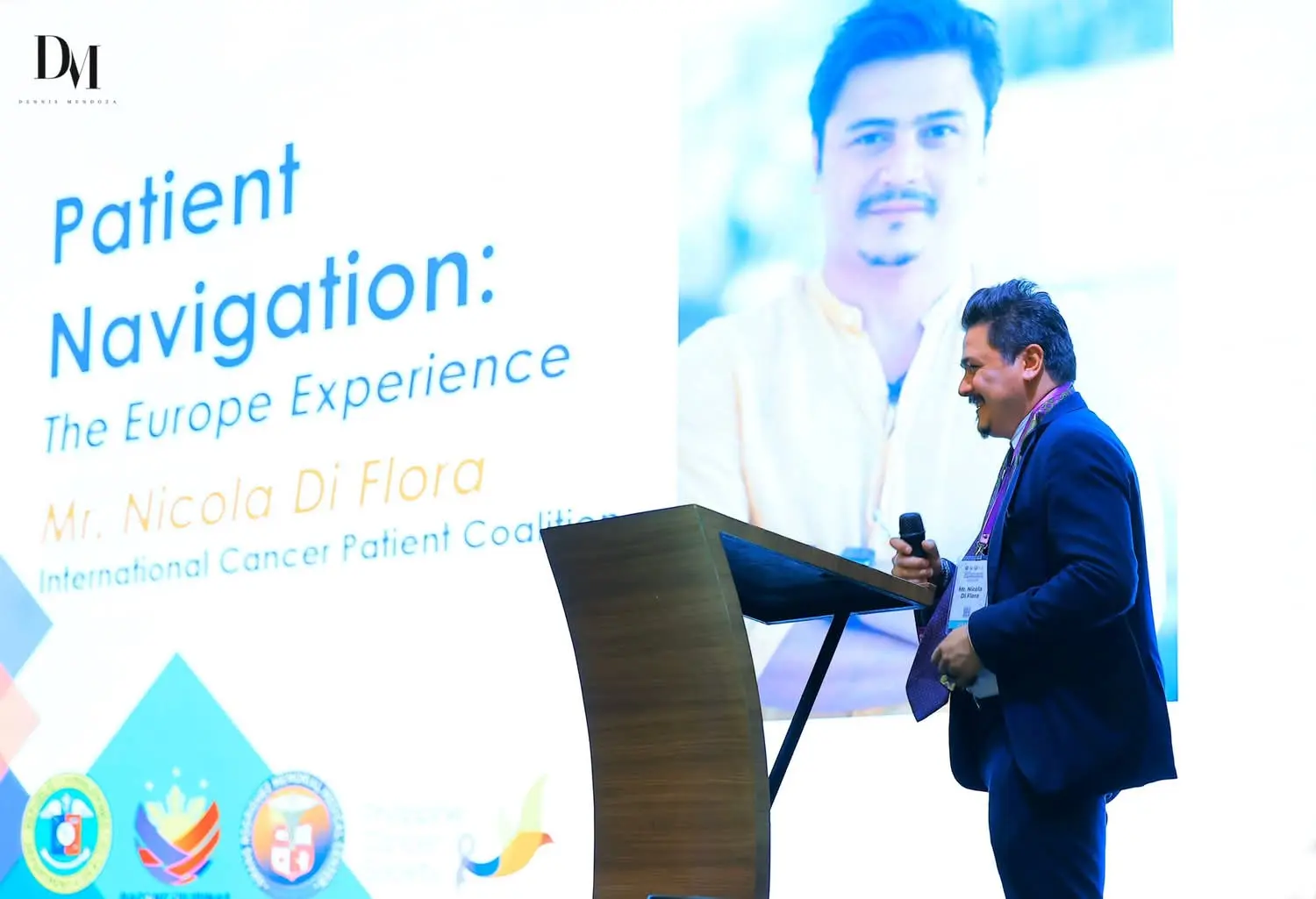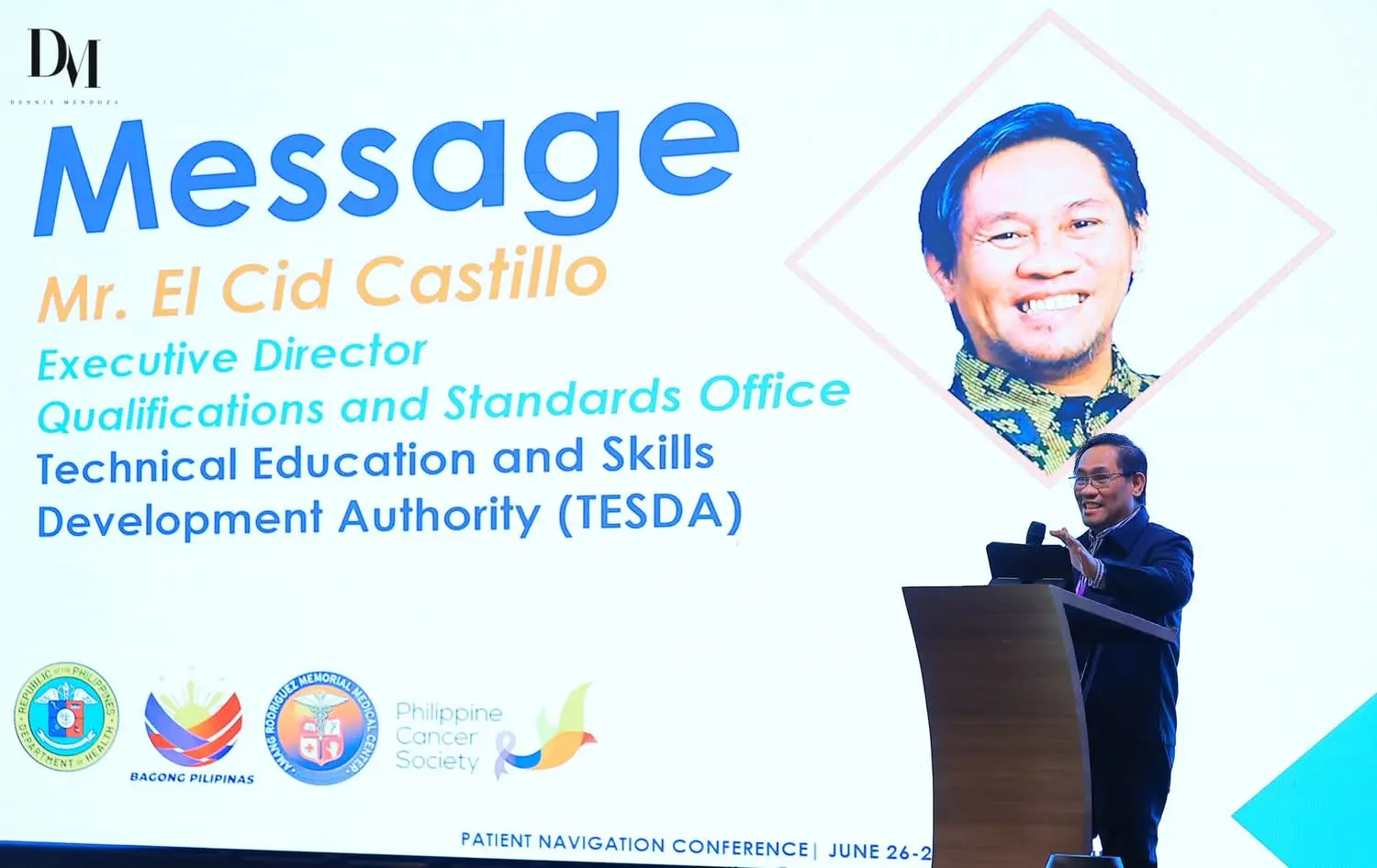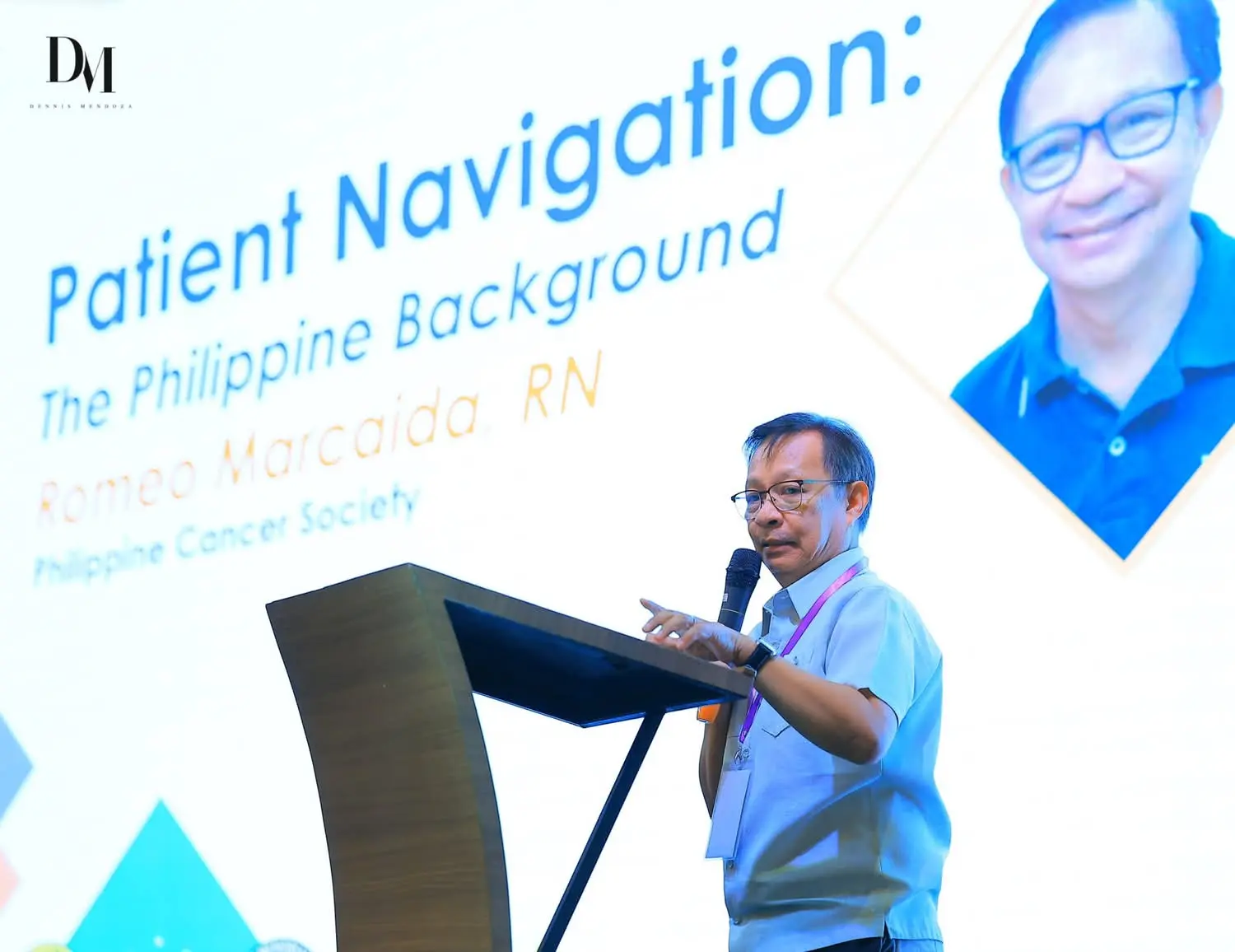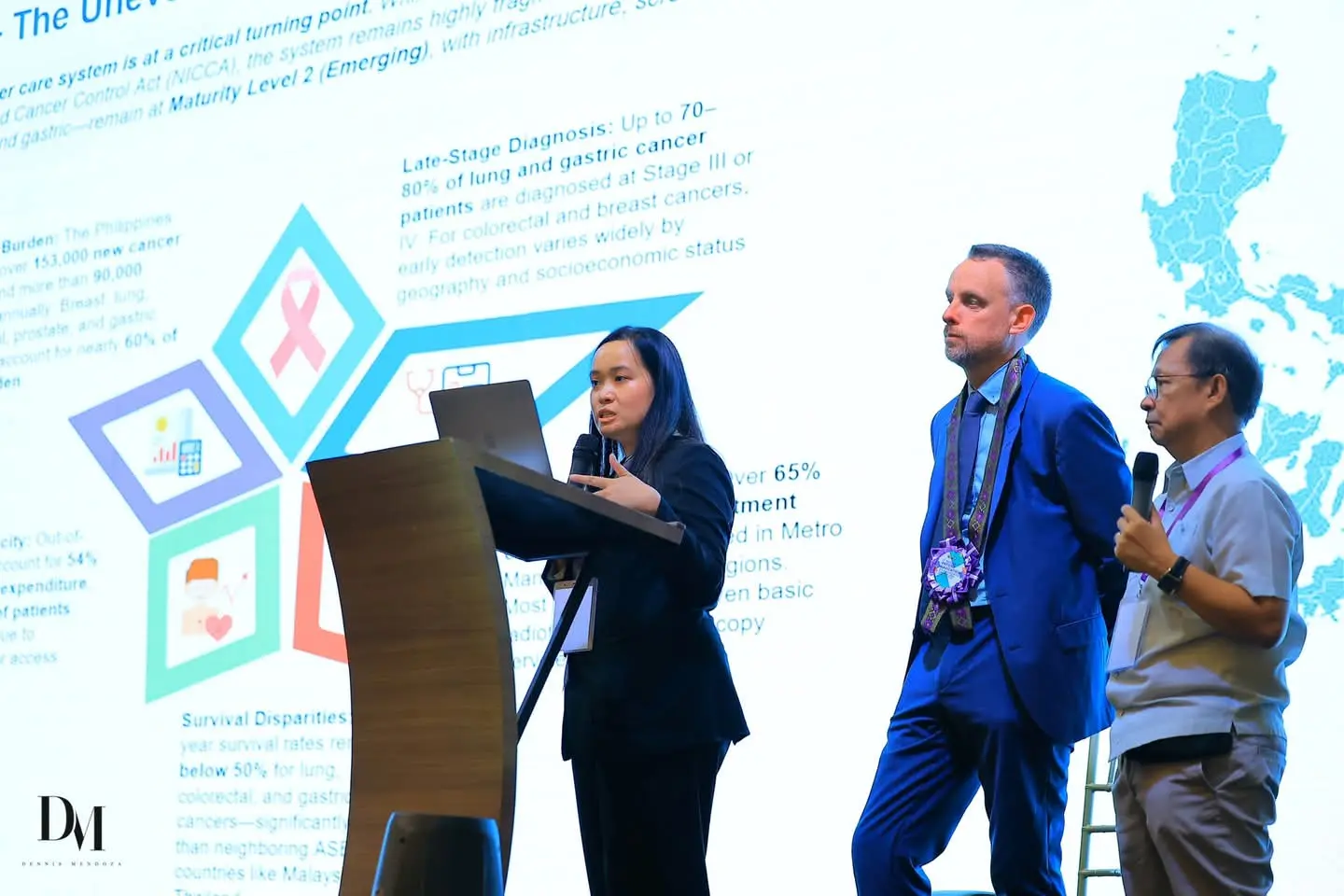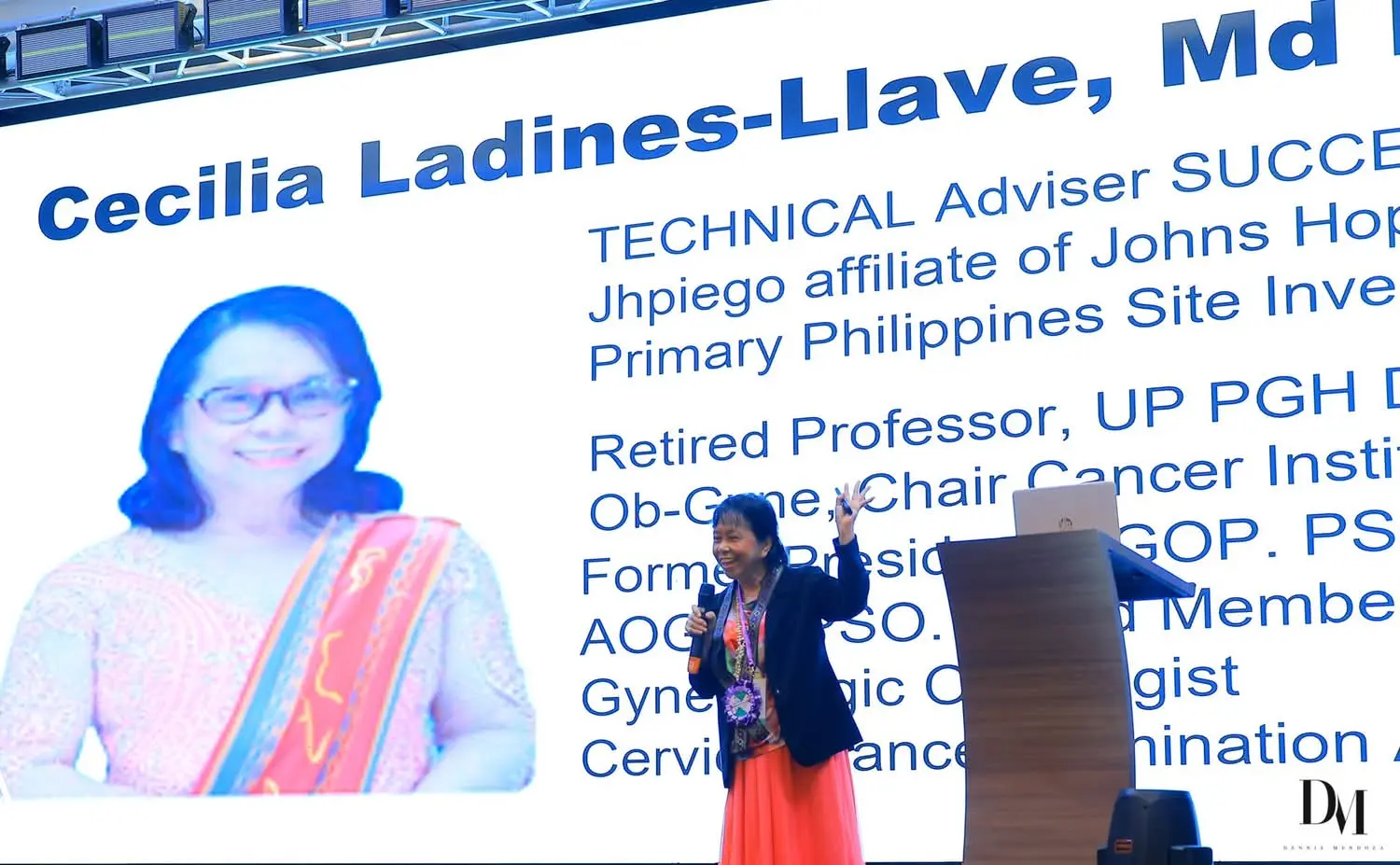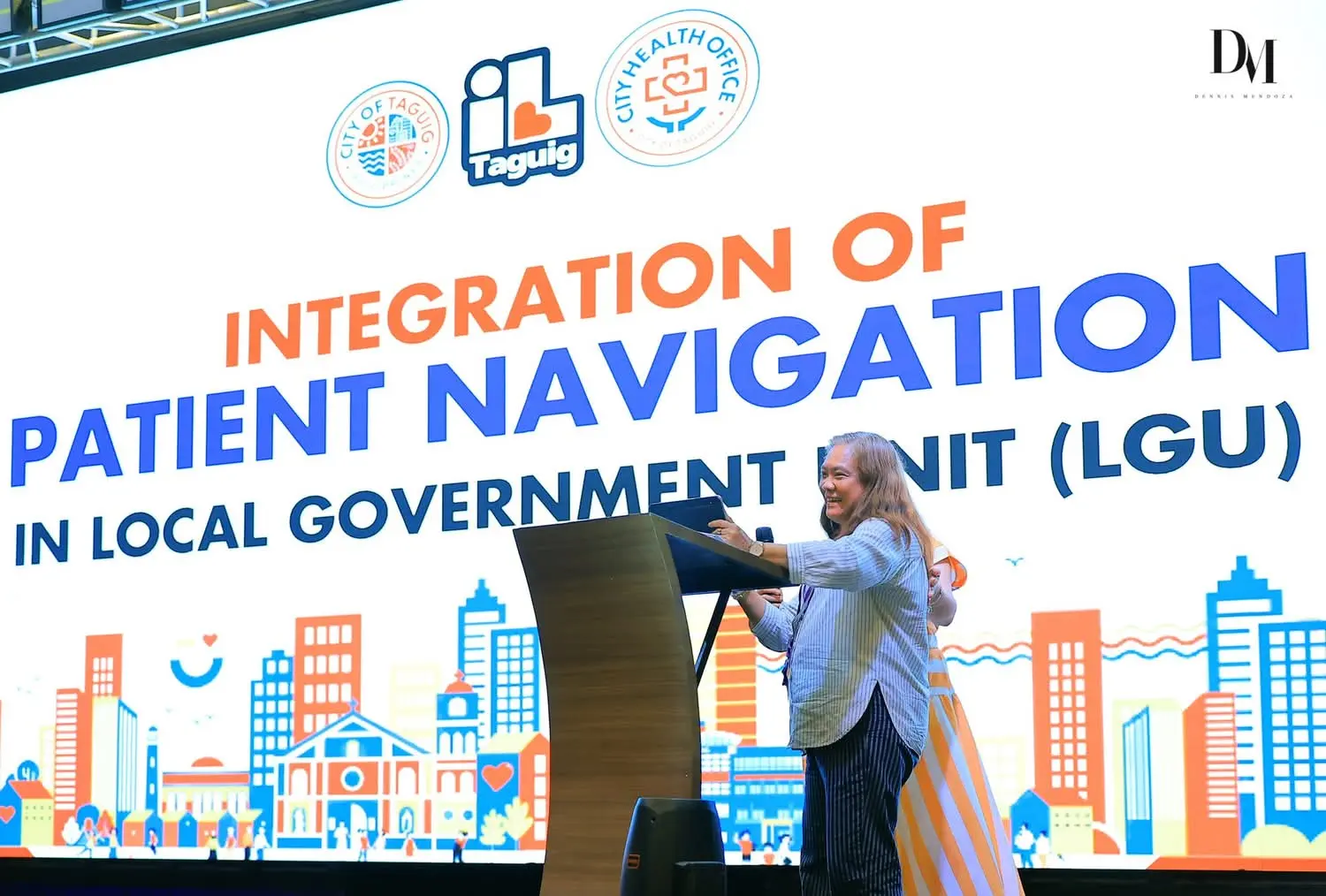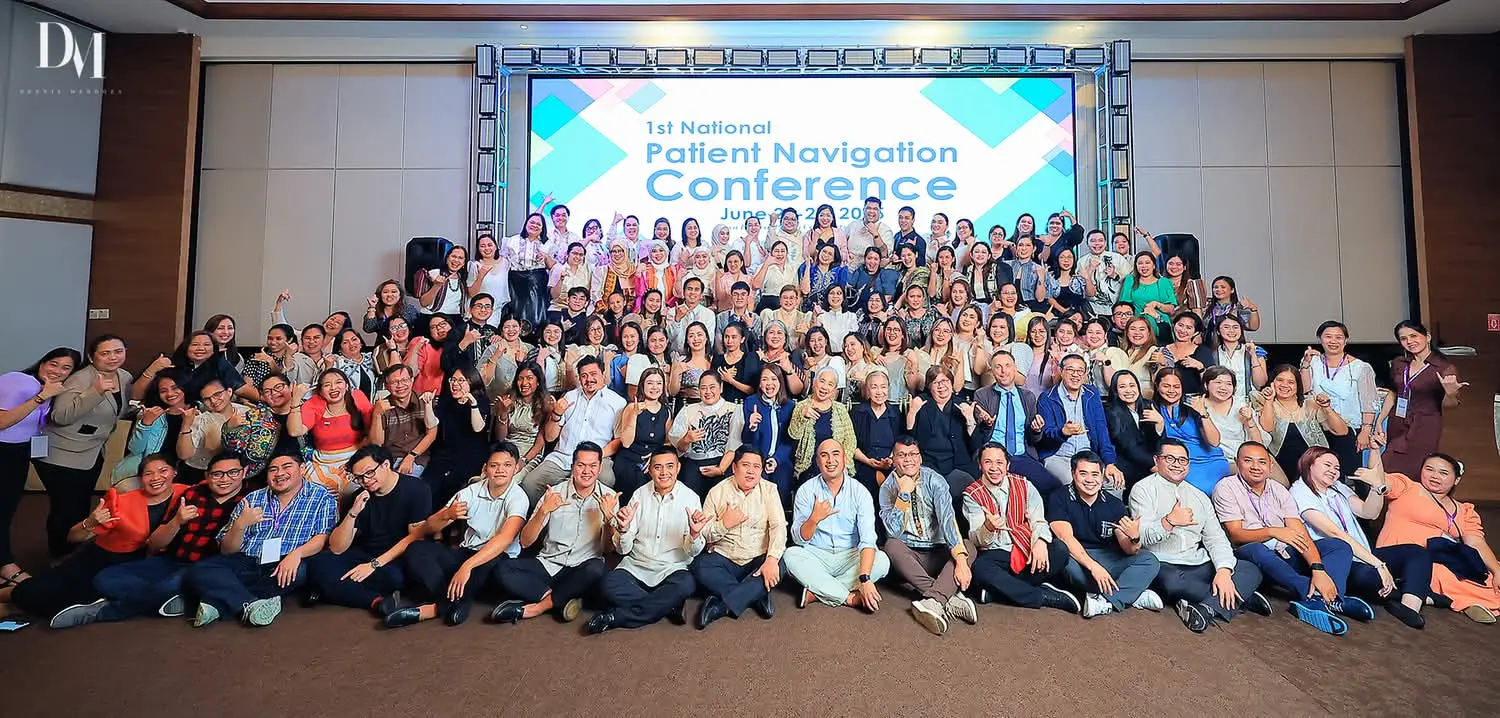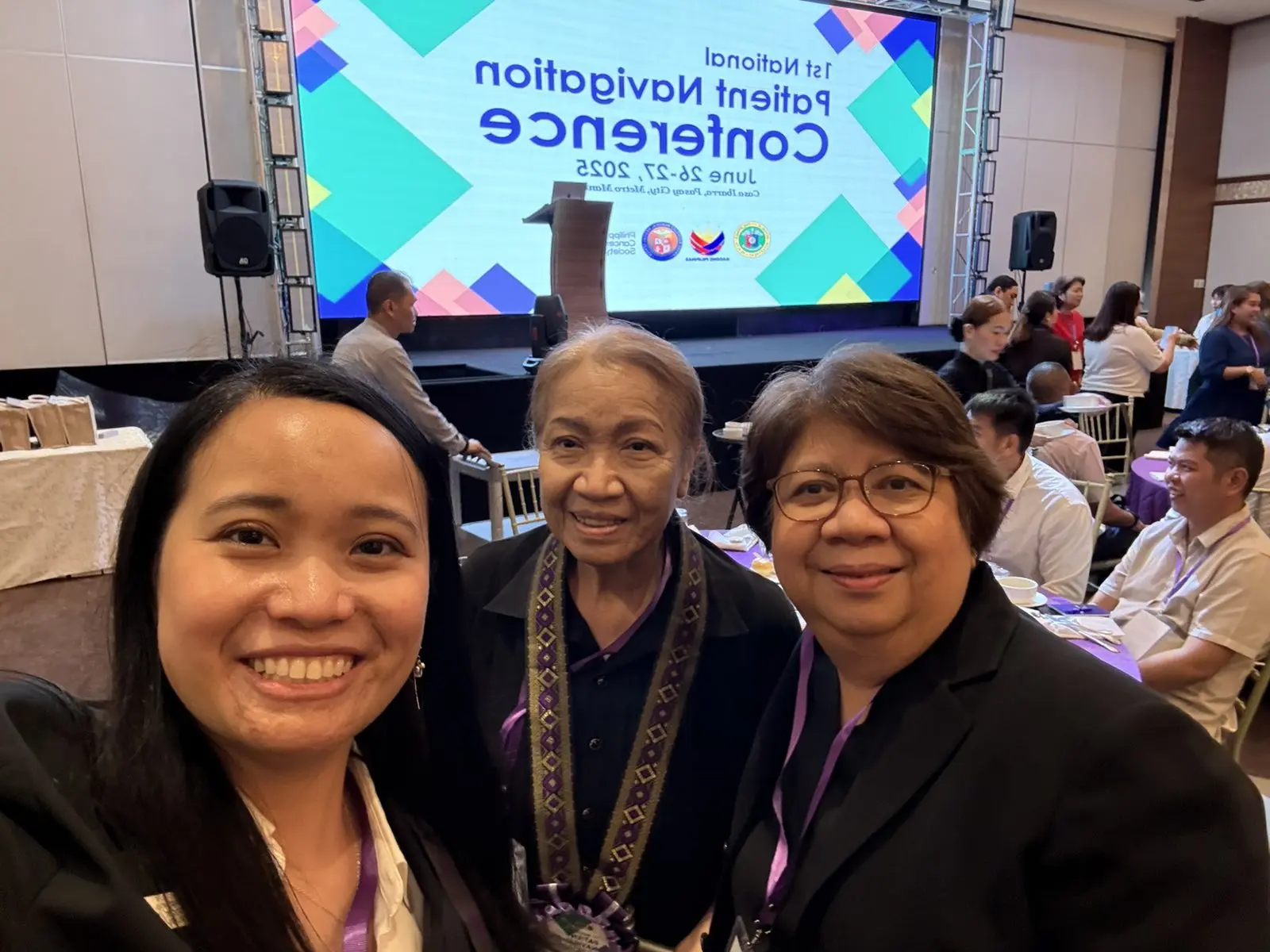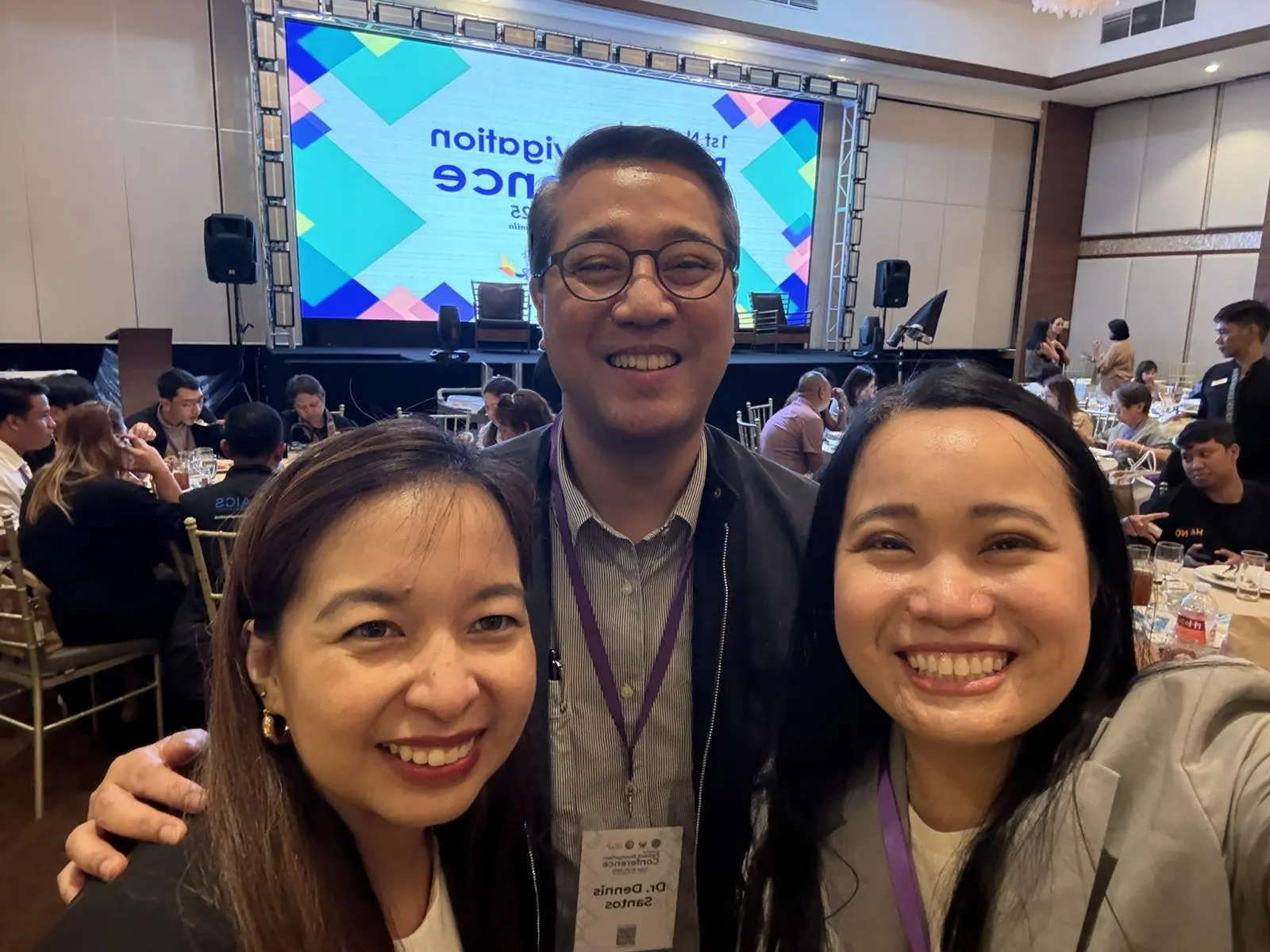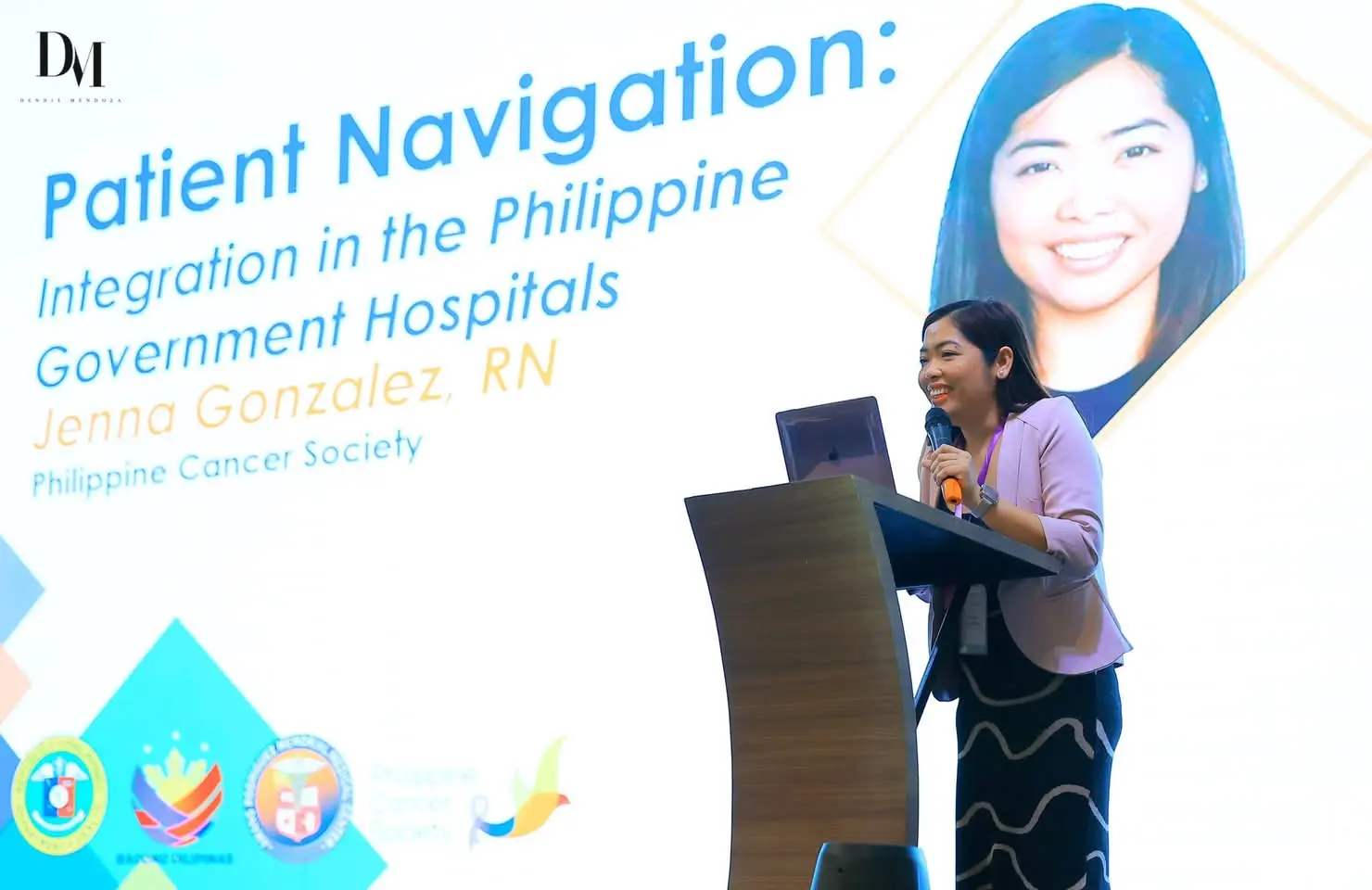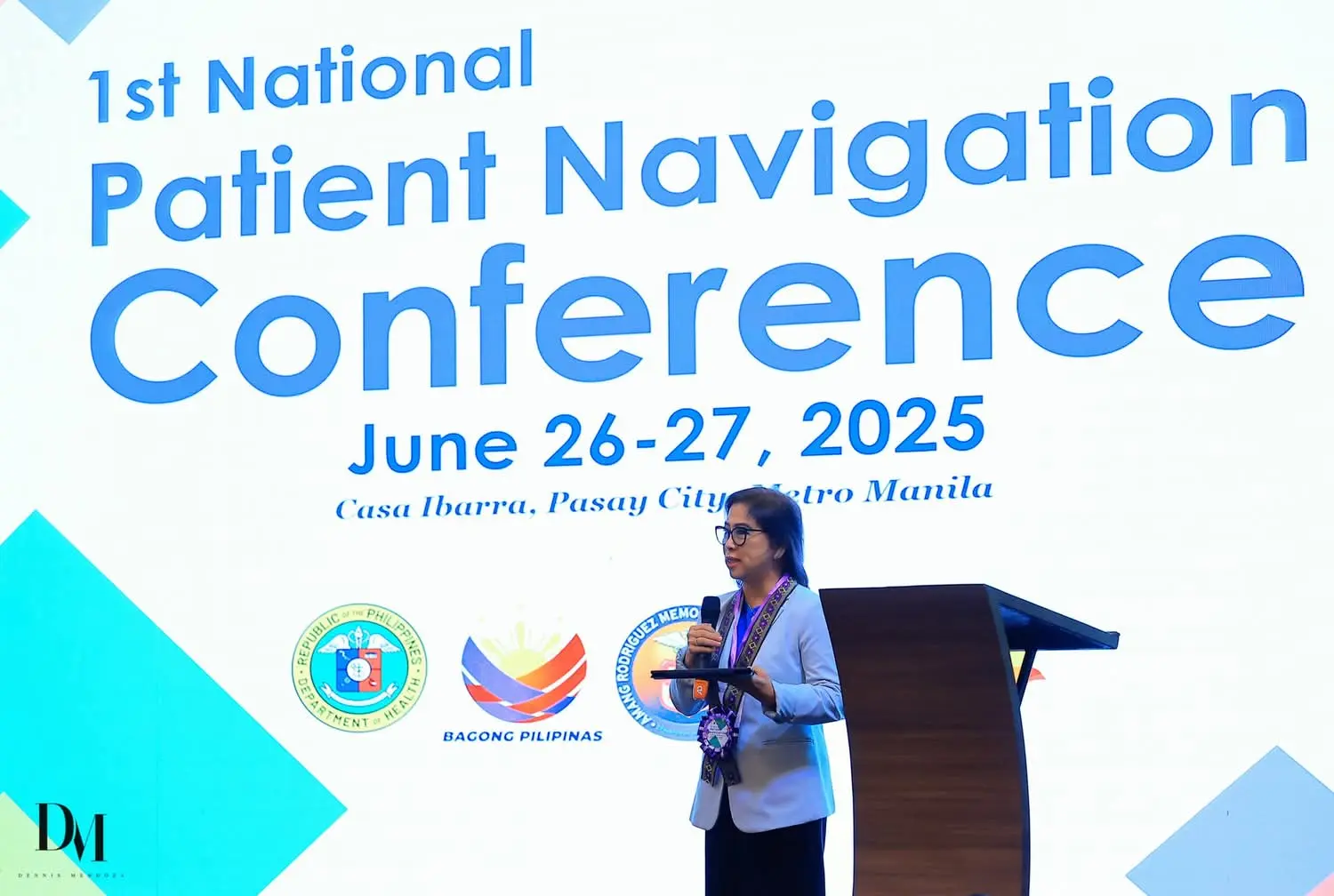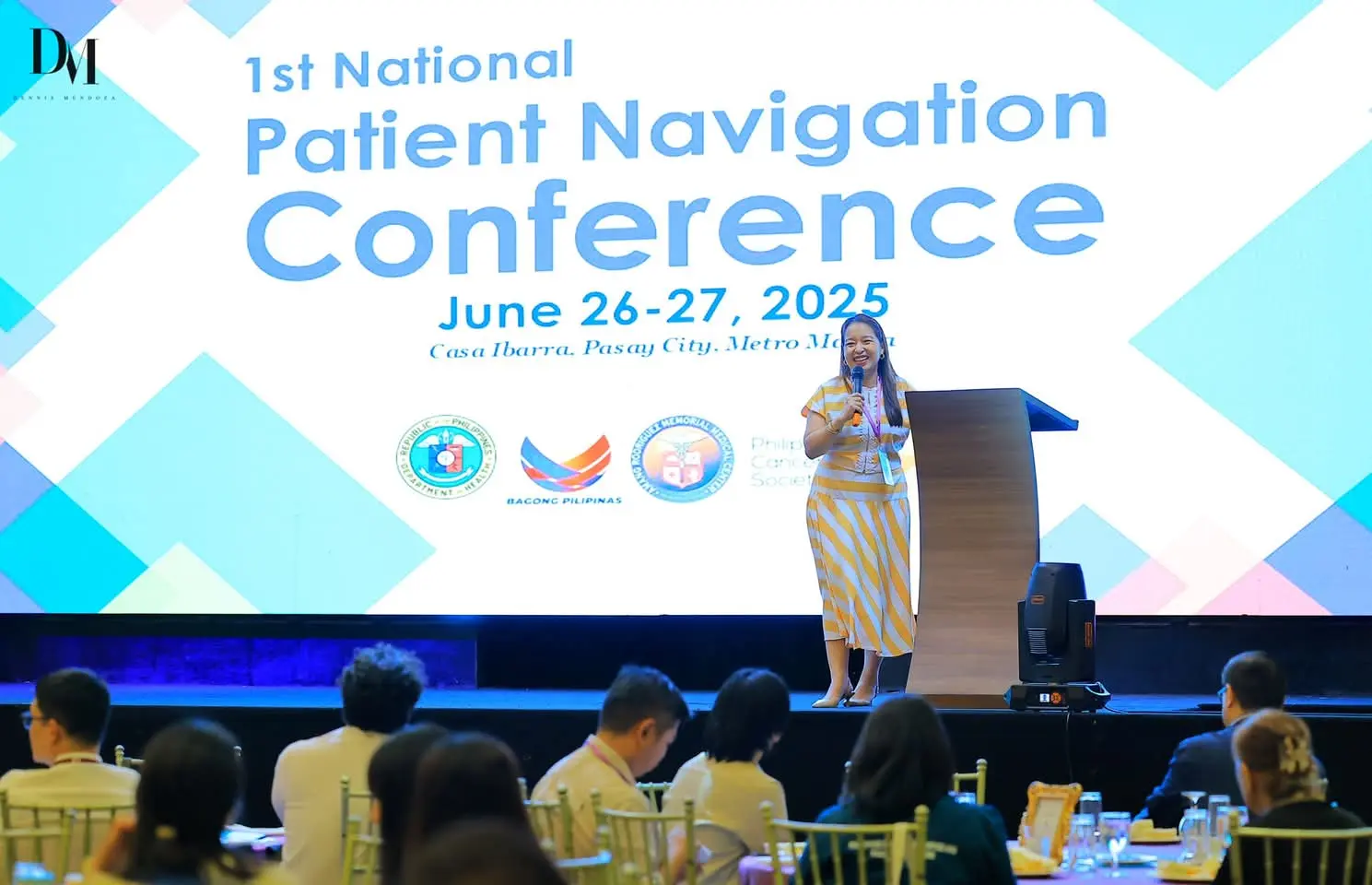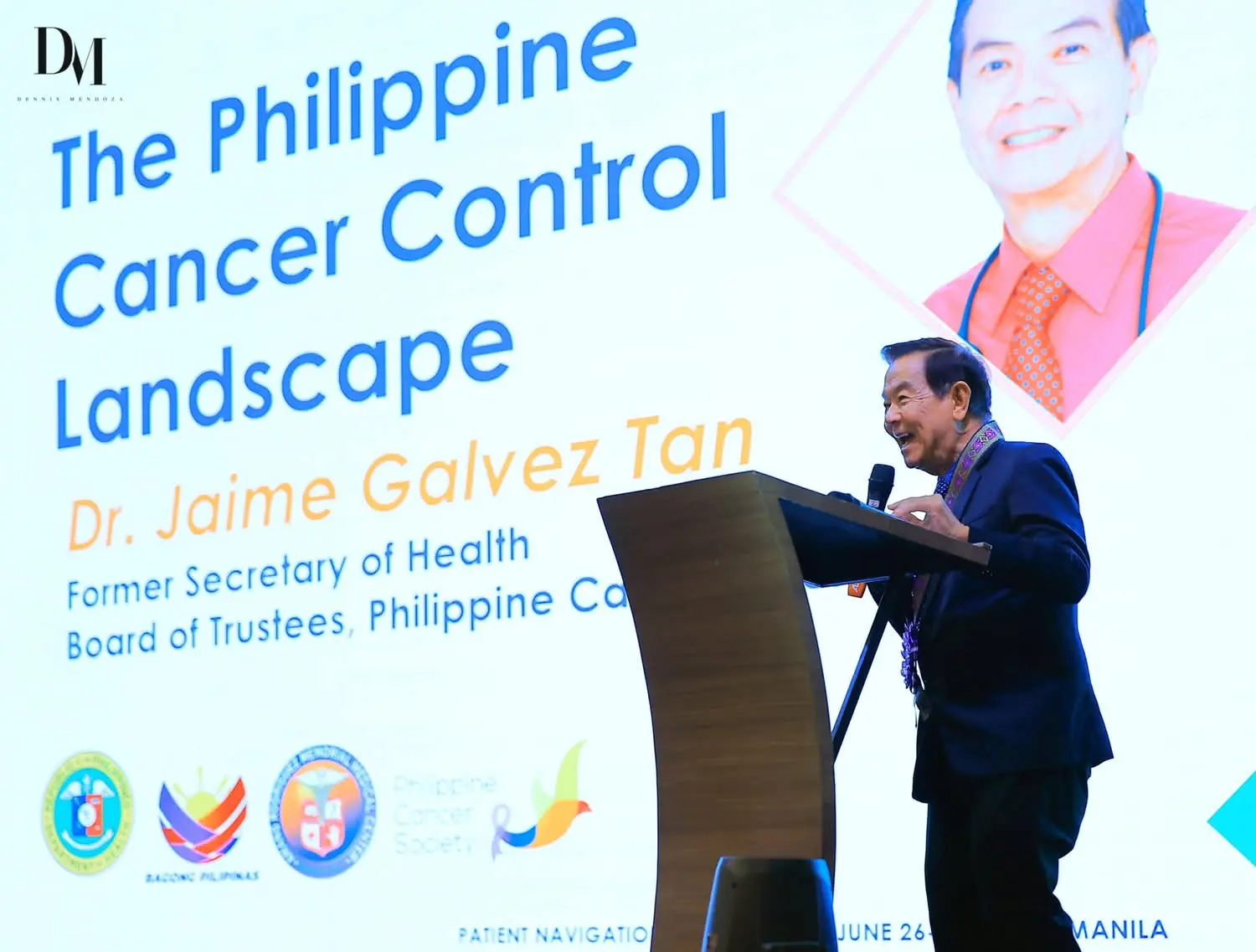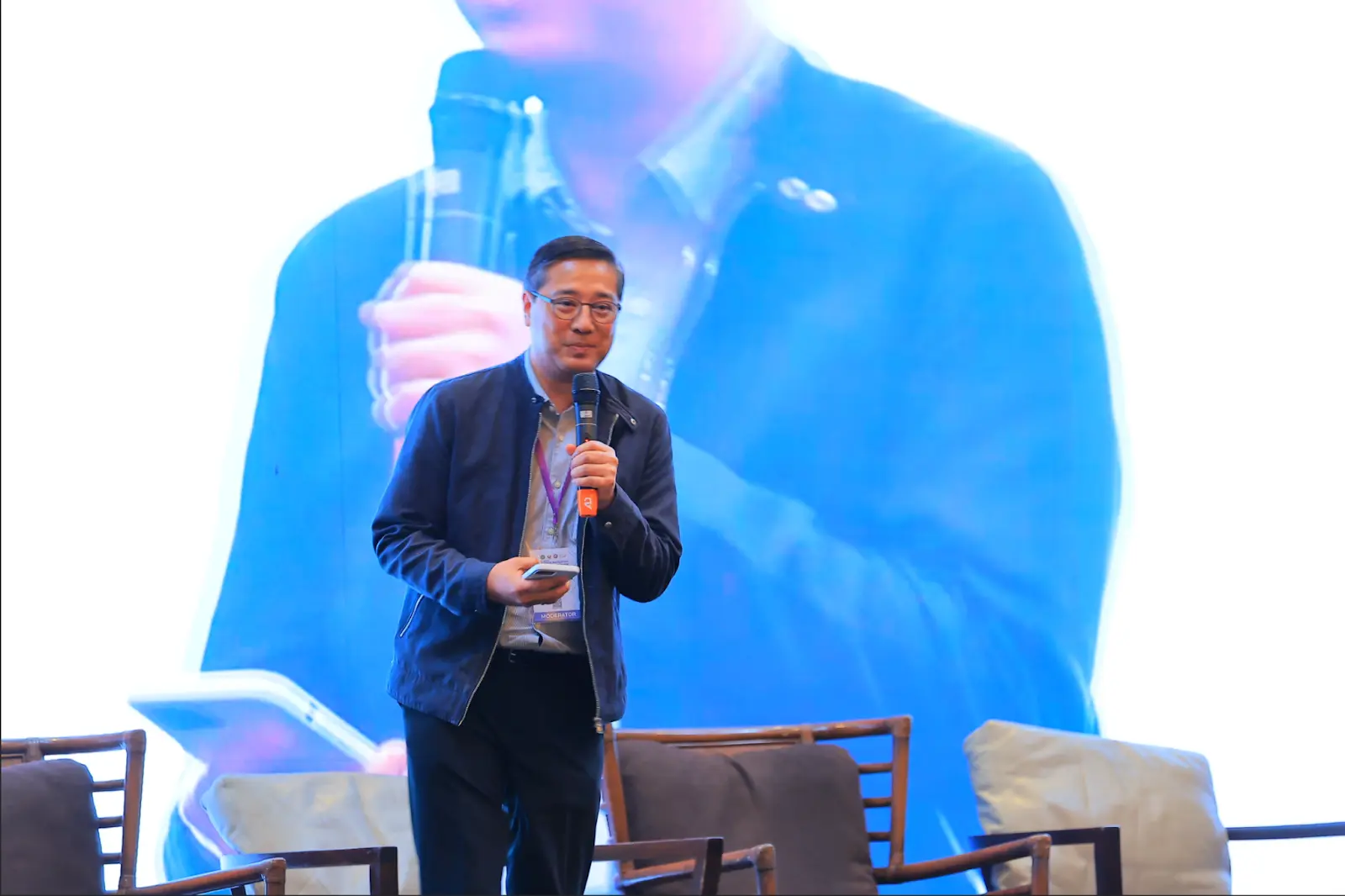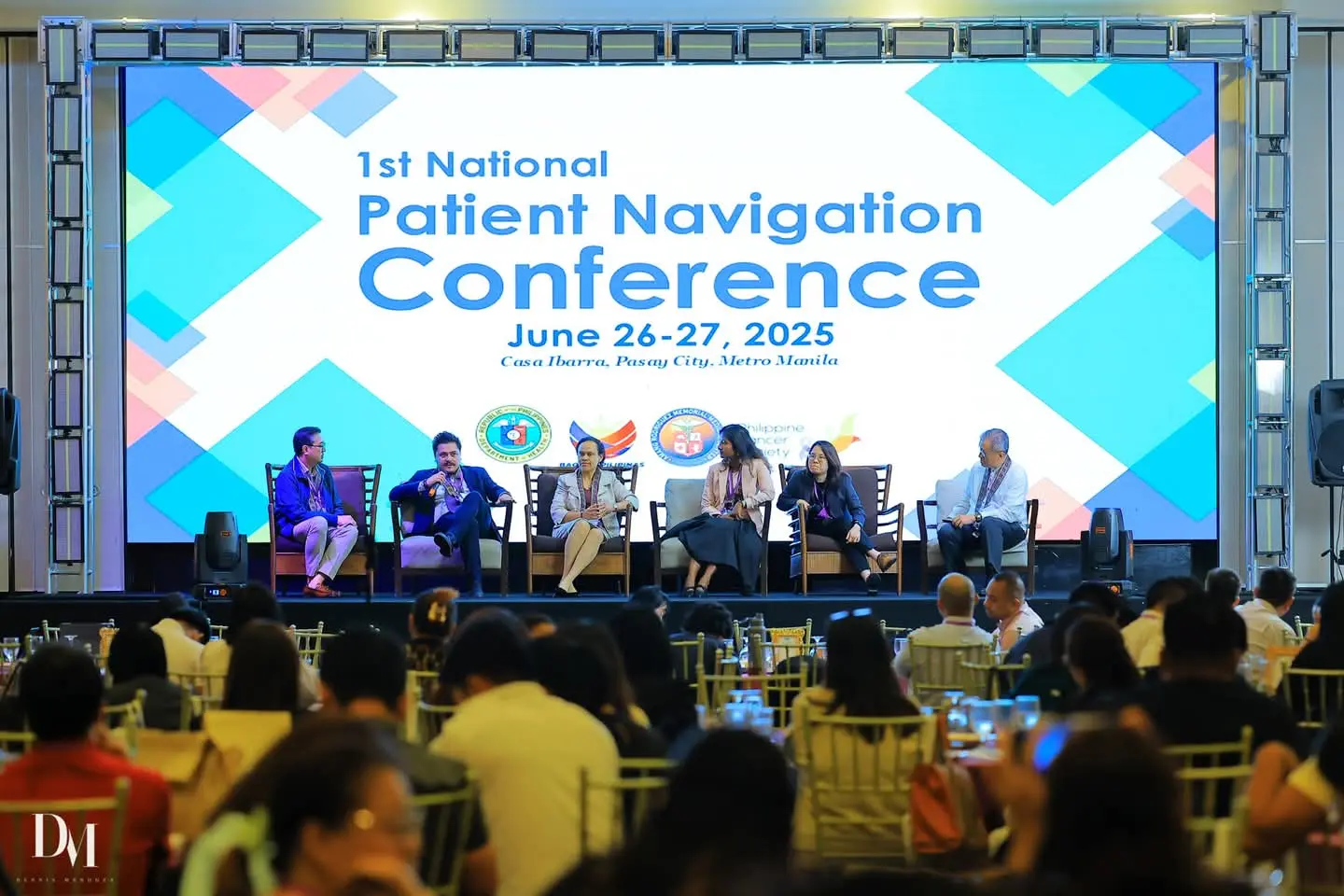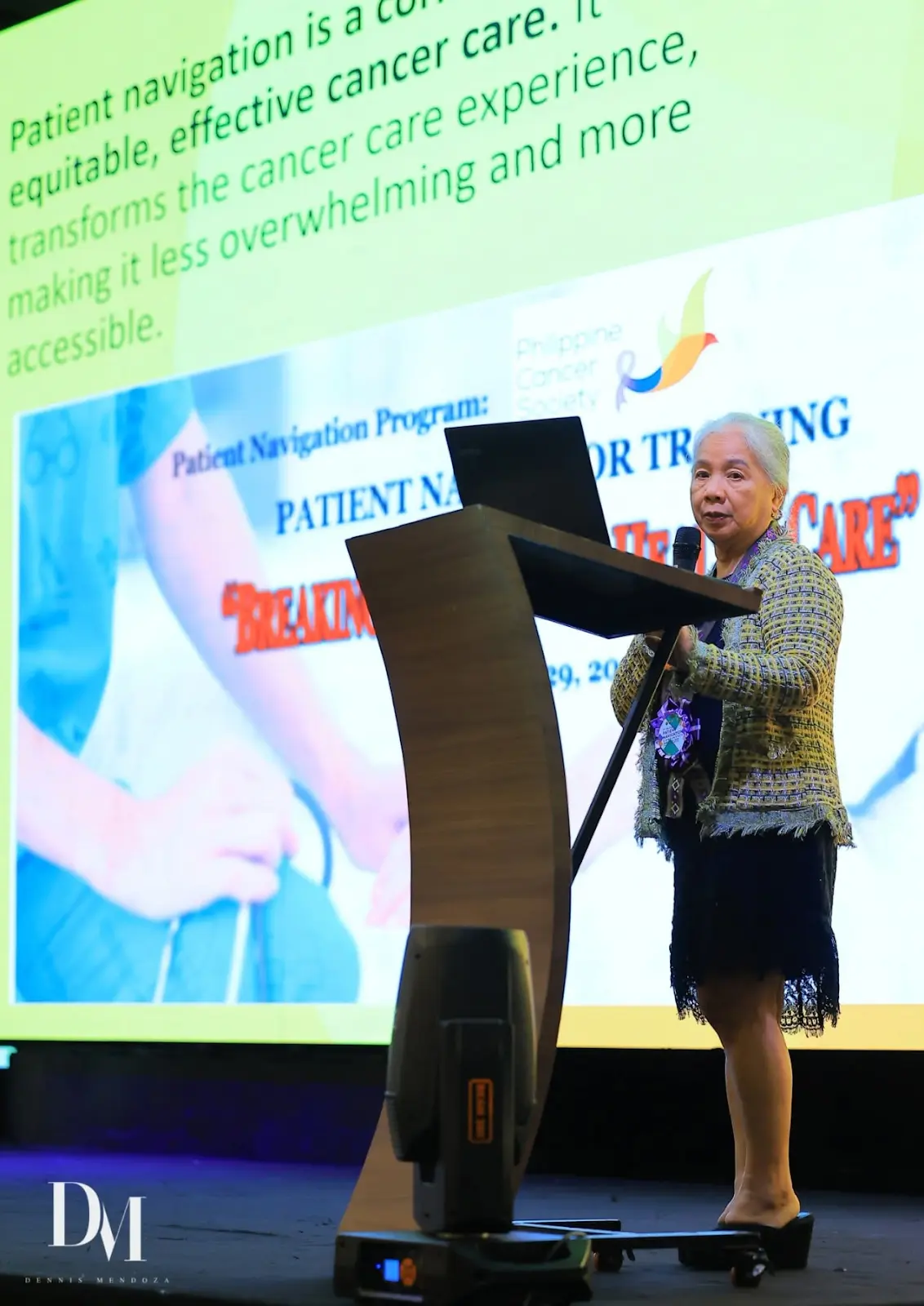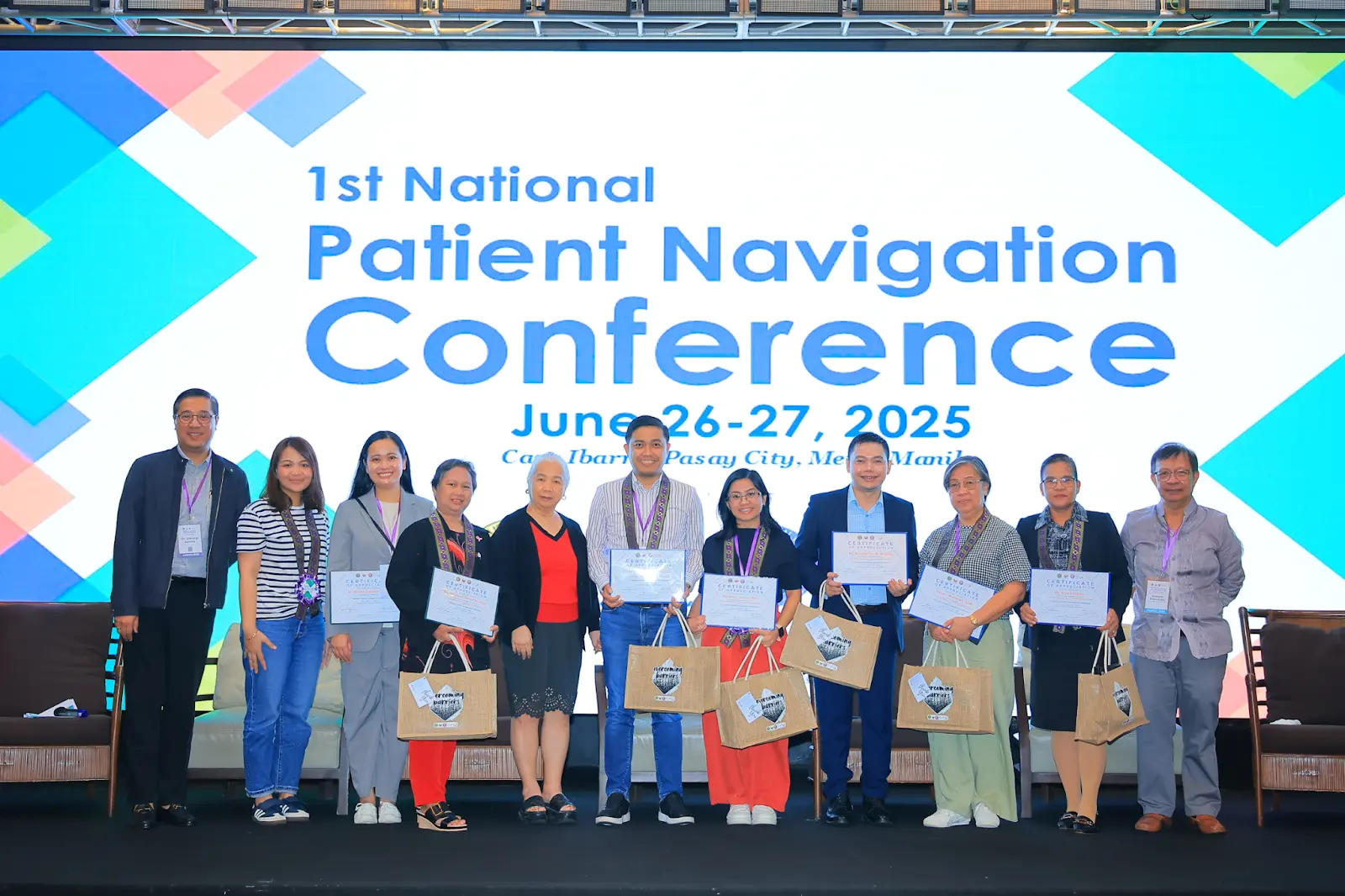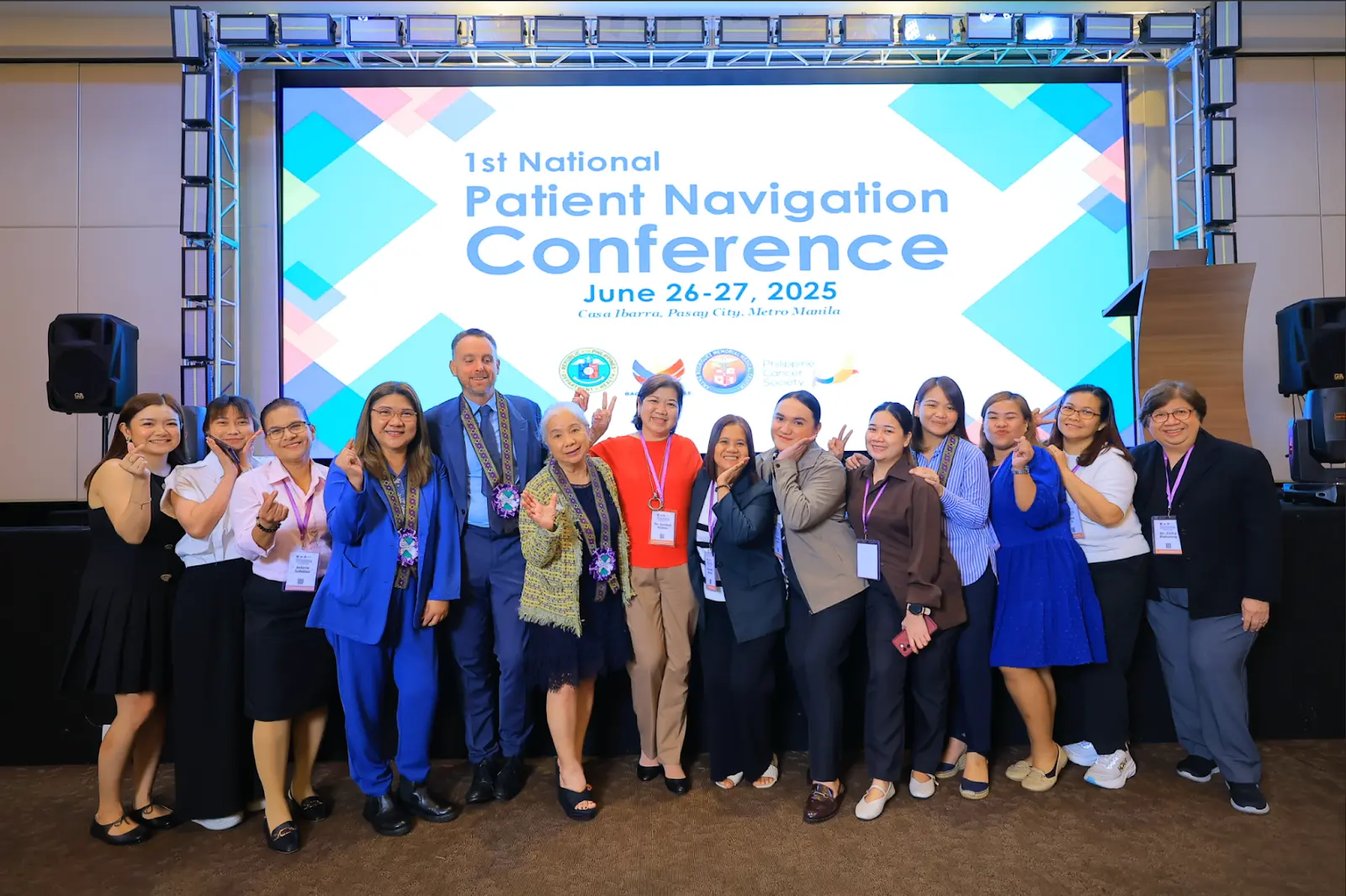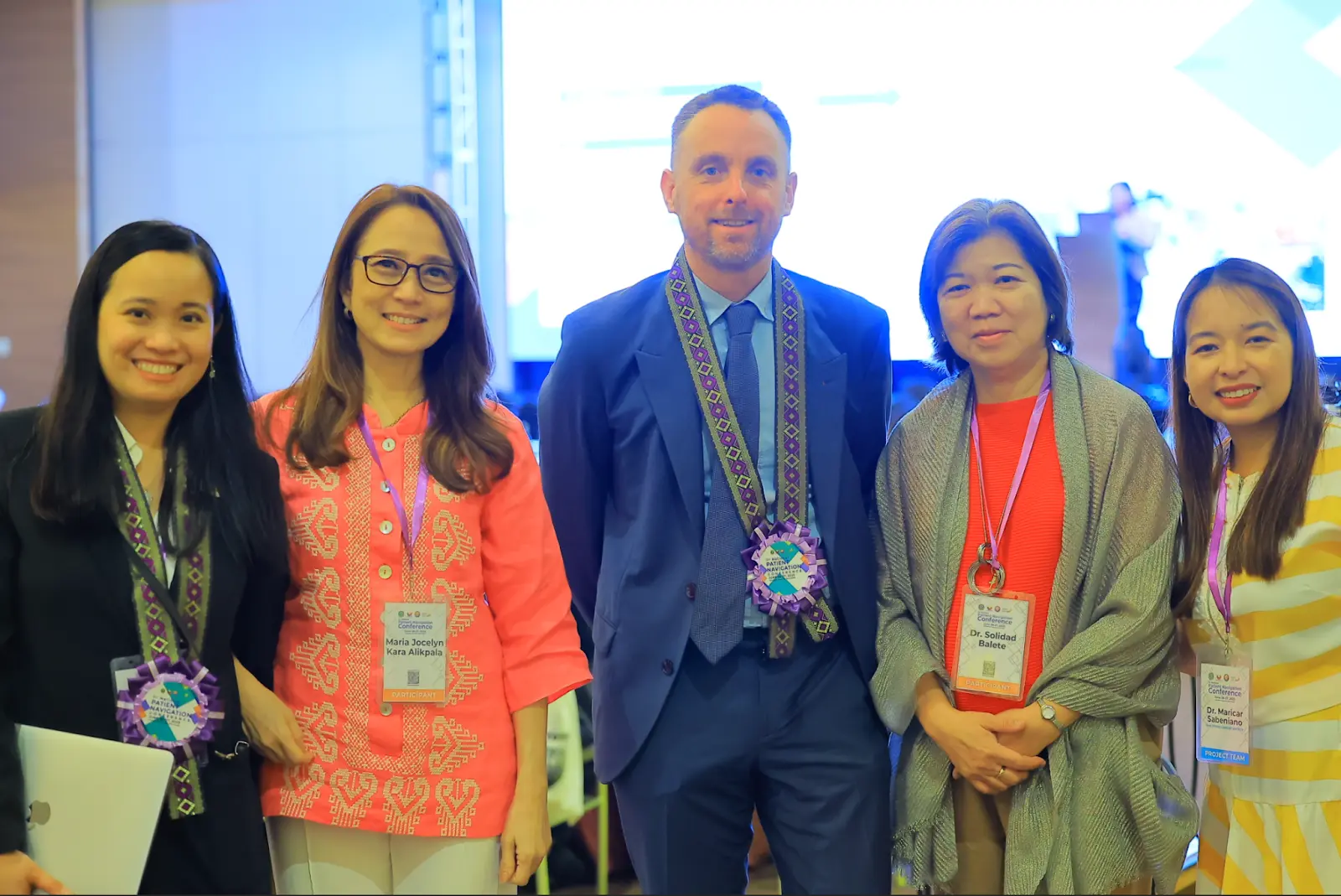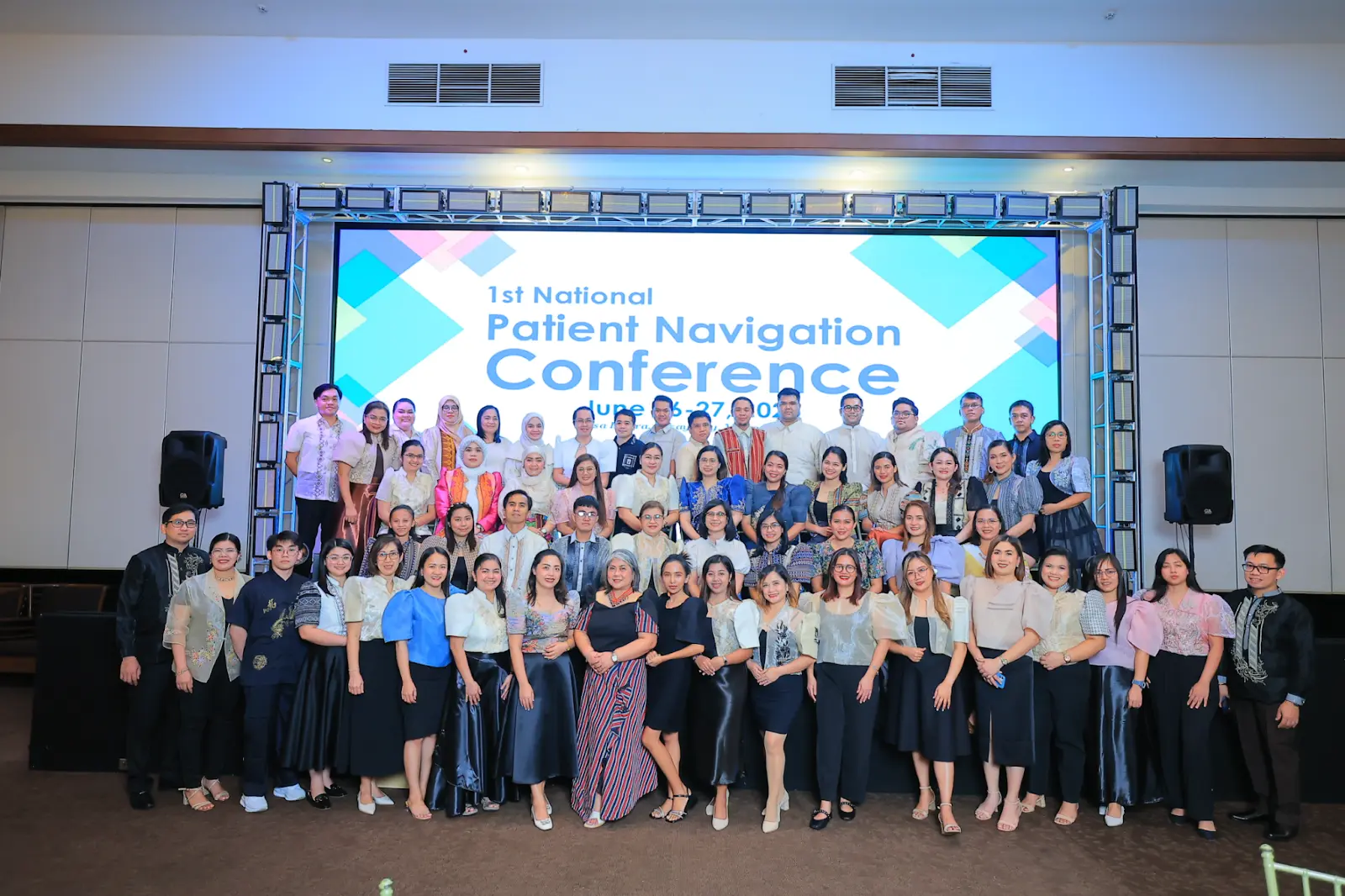Philippine Society of Medical Oncology (PSMO) Strengthens Commitment to Patient-Centered Care Through Participation in Historic 1st National Patient Navigation Conference (by Herdee Gloriane C. Luna, MD)
PSMO Champions Integrated Cancer Care Through Patient Navigation
The Philippine Society of Medical Oncology (PSMO) proudly participated in the landmark 1st National Patient Navigation Conference held June 26-27, 2025, at Casa Ibarra, Pasay City, demonstrating the organization's unwavering commitment to advancing patient-centered cancer care across the Philippines.
Dr. Chita Nazal-Matunog, PSMO President, represented the premier professional organization of medical oncologists throughout the archipelago. PSMO's active participation in this historic conference underscores the critical importance of integrating patient navigation services within comprehensive cancer care delivery systems. The conference, organized by the Department of Health - Cancer Control Division (DOH-CCD), Amang Rodriguez Memorial Medical Center (ARMMC), and the Philippine Cancer Society (PCS) - through the leadership of Dr. Jan Aura Llevado (DOH-CCD), Dr. Imelda Mateo (ARMMC), Dr. Dennis Santos (ARMMC) and Dr. Corazon A. Ngelangel (PCS), served as the culminating activity of a comprehensive Patient Navigation Training Program that successfully trained 61 patient navigators from regions outside the National Capital Region (NCR).
Advancing Multidisciplinary Cancer Care Excellence
PSMO members who attended the conference gained invaluable insights into the evolving landscape of patient navigation, recognizing its essential role in bridging gaps between complex oncological treatments and patient understanding, accessibility, and adherence. The conference provided PSMO physicians with evidence-based strategies for collaborating effectively with patient navigators to optimize treatment outcomes and enhance the overall patient experience.
"Patient navigation represents a fundamental shift toward truly patient-centered oncology care," noted a PSMO representative at the conference. "Our participation in this landmark event reinforces our commitment to supporting comprehensive care models that address not only the medical aspects of cancer treatment but also the psychosocial, financial, and logistical challenges our patients face."
Key Insights from the Comprehensive Two-Day Program
Through the structured program that included presentations on Philippine cancer control landscape, integration strategies, and international best practices, PSMO members gained critical insights relevant to medical oncology practice:
Day 1 Highlights: Foundation and Global Perspectives
PSMO attendees participated in sessions that provided essential context for patient navigation in the Philippines, including:
- Philippine Cancer Control Landscape: Comprehensive overview presented by former Health Secretary Dr. Jaime Galvez-Tan, providing context for current challenges and opportunities in cancer care delivery
- Integration in Government Hospitals: Learning from Nurse Jenna Gonzalez about successful implementation strategies in Philippine Government Hospitals
- Cervical Cancer Control Initiatives: Understanding specialized navigation applications through Dr. Cecilia Llave's presentation on cervical cancer prevention and treatment programs
- Local Government Unit Integration: Insights from Dr. Susana Amiscua on community-level implementation strategies in Taguig City
International Best Practices and Innovation
The conference featured distinguished international speakers who shared global perspectives on patient navigation:
- Malaysia Experience: Ms. Mandy Thoo and Dr. Suwarna Laxshmi Ramanathan from the National Cancer Society of Malaysia shared community engagement strategies and patient support coordination models
- Latin America Perspective: Ms. Nancy Peña from Navegacion de Paintes Internacional provided insights into patient navigation challenges and solutions in Latin American contexts
- European Innovation: Dr. Gabry Kuijten from the Anticancer Fund presented "My Cancer Navigator," demonstrating personalized, evidence-based information services for cancer patients
- Global Coalition Insights: Mr. Nicola Di Flora from the International Cancer Patient Coalition emphasized the worldwide importance of organized, person-centered cancer care
Day 2 Focus: Practical Implementation and Team Integration
The second day's panel discussions provided PSMO members with actionable insights for clinical practice:
Overcoming Barriers Through Resource Access
PSMO attendees learned about comprehensive support resources available for cancer patients, including presentations from:
- DSWD: Director Edwin Morata outlined social welfare programs and financial assistance options
- PCSO: Ms. Ethel Lovino detailed charity assistance programs specifically for cancer patients
- Kythe Foundation: Ms. Lourdes 'Odette' Magno presented psychosocial support services for pediatric cancer patients and families
- The Ruth Foundation: Dr. Ruth Orillaza-Chi shared palliative and hospice care resources
Role of Navigators in Interdisciplinary Healthcare Teams
This critical session, moderated by Dr. Herdee Luna (PCS), featured healthcare professionals demonstrating successful multidisciplinary collaboration:
- Specialized Care Integration: Dr. Marvine Jonne Mendoza (NKTI) shared experiences with patient navigation in transplant medicine
- Institutional Best Practices: Patient navigators Ms. Hazel Jacinto (Lung Center of the Philippines) and Nurse Richelle Cris Miranda (National Children's Hospital) provided practical implementation insights
- Social Work Collaboration: Medical social workers Ms. Arlene Sabdao (Jose R. Reyes Memorial Medical Center) and Ms. Daisy Manlangit (Philippine General Hospital) emphasized the importance of coordinated psychosocial support
- Patient Advocacy Perspective: Cancer survivor Ms. Betty Senador highlighted the critical importance of compassionate, patient-centered care from the patient's viewpoint
Navigating Care Transitions Across Settings
The final panel addressed complex care coordination challenges relevant to medical oncology practice, featuring:
- Regional Implementation: Ms. Margie Calimag from Cagayan Valley Medical Center shared rural healthcare navigation experiences
- Academic Medical Center Model: Dr. Marianne Joy Maritana (UP-PGH KWAGO Coordinator) presented university hospital navigation strategies
- Palliative Care Navigation: Nurse Malou Tupaz (The Ruth Foundation) demonstrated navigation in end-of-life care settings
- Patient Advocacy: Ms. Reggie Drillon provided additional patient perspective on care coordination needs
Enhanced Care Coordination for Medical Oncology
The conference highlighted how patient navigators serve as vital liaisons between medical oncologists and patients, facilitating better communication, treatment adherence, and care continuity. Attendees learned about effective integration strategies that can streamline patient care pathways and reduce treatment delays, ultimately improving clinical outcomes.
Improved Patient Outcomes Through Navigation
Presentations demonstrated how patient navigation services significantly improve treatment compliance, reduce appointment no-shows, and enhance overall patient satisfaction. These findings align with PSMO's mission to promote excellence in cancer care delivery and optimal patient outcomes. The evidence presented showed measurable improvements in care coordination and patient experience metrics.
Multidisciplinary Team Integration Strategies
The conference emphasized the importance of incorporating patient navigators into multidisciplinary oncology teams. Attendees explored collaborative care models that leverage the unique skills of patient navigators to complement medical oncology expertise, creating more comprehensive and patient-centered care approaches.
Comprehensive Support Resource Access
Attendees gained detailed knowledge about available resources for cancer patients, including financial assistance programs, psychosocial support services, and community-based care options. This information enables medical oncologists to provide more holistic care recommendations and ensure patients can access necessary support services throughout their treatment journey.
Supporting National Cancer Control Initiatives
PSMO's participation in the conference aligns with the organization's broader support for national cancer control initiatives led by the Department of Health - Cancer Control Division (DOH-CCD). The society recognizes that effective cancer care requires coordinated efforts between medical specialists, healthcare institutions, government agencies, and patient support organizations.
The conference's focus on establishing the Philippine Patient Navigation Network as a National Community of Practice resonates with PSMO's vision of creating sustainable, collaborative networks that enhance cancer care quality and accessibility throughout the Philippines. This network will foster camaraderie, shared learning, professional development, and practice alignment across diverse healthcare settings.
Commitment to Continuing Education and Professional Development
By participating in this groundbreaking conference attended by 245 participants, including 6 moderators, 14 local panelists, and 5 international speakers, PSMO demonstrates its commitment to ensuring that Filipino medical oncologists remain at the forefront of evolving cancer care delivery models. The society recognizes that modern oncology practice must encompass not only advanced medical treatments but also comprehensive patient support systems.
Collaborative Partnerships for Enhanced Care
The conference provided PSMO with opportunities to strengthen partnerships with key stakeholders in Philippine cancer care, including:
- Government Healthcare Institutions: Collaborating with DOH-CCD, ARMMC, and major medical centers to implement patient navigation programs
- Professional Healthcare Organizations: Working with nursing societies, social work organizations, and other medical specialties to promote multidisciplinary care approaches
- Patient Advocacy Groups: Supporting organizations like the Philippine Cancer Society in their patient education and support initiatives
